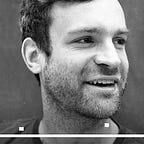It was 1991 and I was 12 when I heard my first bootleg tape of the new rave sound that had engulfed the U.K. subculture. It was a revelation — my whole body responded physically and I was on a blissful high for weeks. I knew right away that this sound was the raw material I wanted to spend my hours and days crafting.
Before that my first contact with music was through caressing wood, string and horsehair into resonation by intervening with my weeny 5-year-old limbs; the violin was my first instrument. So when I first heard electronic music I processed the vibrations in these terms, as something that should be generated by bodily interaction: moment by moment, sound by sound.
I consider myself lucky to think of music like this — it’s an increasingly rare perspective. The prevalence of recorded music — sound is abstracted from its physical origin, freeze-dried into file formats, cloned and distributed — gives us a very different idea of music. If your first experiences came from the recorded world, your understanding will be that music is pure sound in an imaginary-time world, unchanging and disembodied.
Don’t get me wrong, the imaginary-time world is a fantastic place. Intrepid explorers beginning with Thomas Edison discovered and colonized imaginary time with recording, playback, manufacturing and distribution technology. And then came another revolution where we developed technology to write music ‘direct-to-imaginary’ first by copying, cutting and splicing tape, recently by editing and arranging sound in an imaginary timeline on a computer.
The composers of today, the priests of imaginary time, concoct the most compelling universes of sound for our mind’s delectation — sometimes without having to strike a string or even tap a button in time to the beat. I’ve been transported by these priests to divine mind realms on many occasions, as I was during those earliest encounters with a Walkman, aged 12. But my physical understanding of music always returns to the body, to sounds made moment-to-moment by real people hitting real instruments.
And I’ve discovered in the years after — much to my dismay and bafflement — that electronic music is really the antithesis of that physical kind of music. It emerges on our sound systems at the end of a long and convoluted pipeline of sequencing, arranging, processing, editing and mastering that is anything but moment-to-moment. It’s the opposite of my first immediate connection to music. It’s much more like ‘direct-to-imaginary’ thinking.
Since those first encounters with rave tapes I’ve looked for ways to make electronic music more physical, more “played.” I’ve done my time in the imaginary-time world releasing albums on respected labels such as Warp and Planet Mu. But alongside that I’ve been developing technology and creating my own instruments for making music spontaneously, in the moment, in response to my environment and those around me.
More recently I’ve left recording behind to focus on completely improvised live shows. I’ve learned a lot — about music, performance, myself and what it is to be human. There’s something very special that happens when an audience realizes they’re experiencing something wholly new, not regurgitated for the billionth time from an unchanging slice of imaginary time somewhere in the cognosphere. The performer extends an invitation to form a direct moment-to-moment relationship with their audience, a shared experience which strengthens our humanity. In moment-to-moment time the performer’s pursuit of perfection evaporates, the audience’s expectation to hear the known is shattered, and together we enter the flow state.
Based on my experiences of performing in this way I know there can be so much more to music than the imaginary-time realm. There’s a new musical revolution around the corner. We stand to regain so much of our humanity by moving away from our preoccupation with imaginary time. The hard work is already well under way. Music tech companies are making more and more products that work like this, and now that the bottom has dropped out of the recorded music industry there’s ever more reason for musicians to stay connected with their audience in realtime.
Next up in this revolution we need an army of adventurous artists and audiences who are happy to gamble their safety net, establish a culture of spontaneity and extend a hand to the more risk-averse. This is beginning to happen and once the revolution bites we’ll feel that recorded music is just a sleek gift-wrap on an ever-changing gift that keeps on giving.
Tim Exile has released albums on Warp and Planet Mu, as well as two new types of music tech with Native Instruments. He also triggered the first ever stage invasion at a TED talk. There’s some new tech coming from Tim — join his mailing list to find out more: timexile.com.
If you enjoyed reading this, please log in and click “Recommend” below.
This will help to share the story with others.
